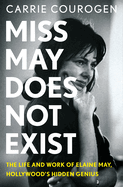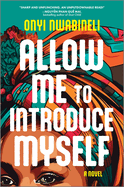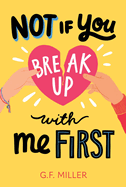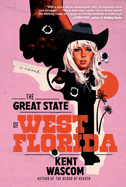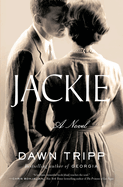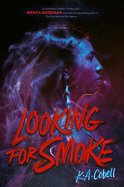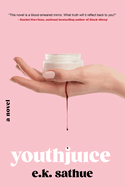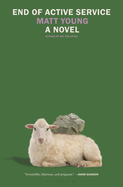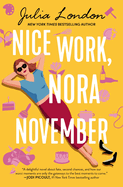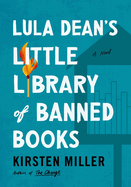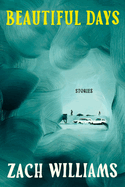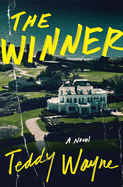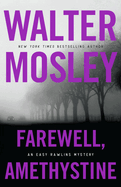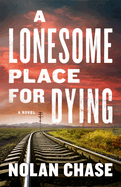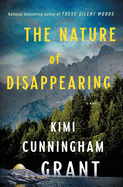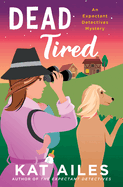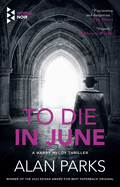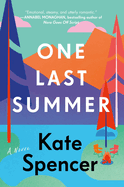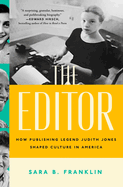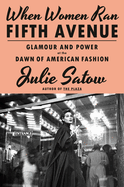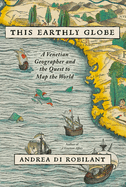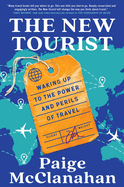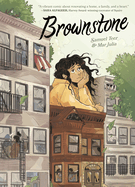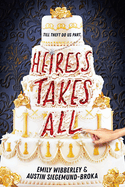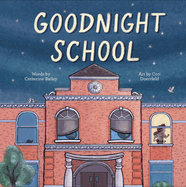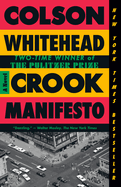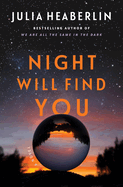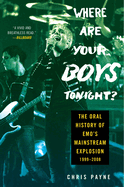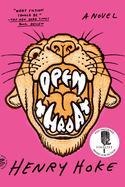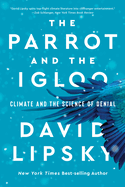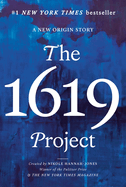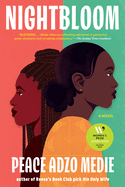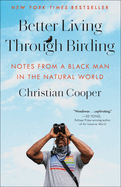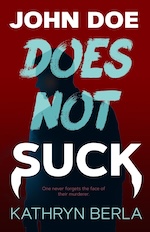Friday, June 21, 2024
Many of the remarkable books featured in this week's issue highlight the contributions of talented women. Miss May Does Not Exist by Carrie Courogen is "a long-overdue biography" of "comic genius" Elaine May; the novel Jackie by Dawn Tripp offers "cinematic scenes and thoughtful interior reflections" about the life of Jacqueline Kennedy Onassis; and Editor: How Publishing Legend Judith Jones Shaped Culture in America by Sara B. Franklin should delight "anyone enamored of publishing's golden age."
Plus, for younger readers, G.F. Miller's "appealing, painfully funny second novel," Not if You Break Up with Me First, tackles the "agonizing muddle" between liking someone and like-liking them; while Looking for Smoke by K.A. Cobell is an "intense and gripping YA thriller" about four Blackfeet teens contending with the Missing and Murdered Indigenous Women crisis.
And for The Writer's Life, memoirist and novelist Matt Young considers fractured narrative structures, time as a flat circle, the reverberations of trauma, and rediscovering the gentle side of being a man after serving in the Marine Corps.
Allow Me to Introduce Myself
by Onyi Nwabineli
Allow Me to Introduce Myself by Onyi Nwabineli (Someday, Maybe) is truly a wild ride. Protagonist Aṅụrị grew up the star of her stepmother's "momfluencer" content and now she's desperate to save her sister from the same emotional wreckage she struggles with.
When Aṅụrị's mother died shortly after childbirth, her father left their home in Nigeria for the leafy neighborhoods of London. Deep in his grief, he hired Ophelia to care for the infant Aṅụrị. He fell in love with the beautiful blonde nanny and married her. Her blog ostensibly began as a way to share stories and photos of Aṅụrị with the family back in Nigeria, but it grew into a lucrative empire.
Nwabineli explores fascinating cultural issues. What can parents ethically share about their children online? And what happens when money enters the equation? Nwabineli also digs into race, beauty, and the friction between first- and second-generation immigrants. Nuance abounds. Even Ophelia is a complex, if still deplorable character, as she falls prey to the social-media mirage of sparkling, round-cut perfection.
This novel raises the bar for the phrase "a compulsive read." Its conflicts are fraught. Aṅụrị's motivations and plight compel readers to emotionally invest in her. And while Nwabineli covers intense territory, humor and friendship add an unexpected and welcome lightness. A cast of endlessly supportive friends creates a cozy atmosphere that counterbalances the fever-pitch tension. Allow Me to Introduce Myself is a gorgeous gem of a novel. --Carol Caley, writer
Discover: A young woman who grapples with the emotional wreckage of having grown up as a social media star tries to save her sister from the same exploitation in this fascinating, thought-provoking novel.
The Great State of West Florida
by Kent Wascom
Florida contains multitudes. It is many things to many people, and Kent Wascom (The New Inheritors; Secessia) explores this harshly and poetically in his fourth novel. The Great State of West Florida follows Rally, a 13-year-old boy in a U.S.A. torn apart by war, by ideas, by the question of what freedom can and should look like. His adoptive family grows more and more erratic, and he wonders what more could be out there as he faces constant homophobic slurs and "macho lunatic[s]." When he is whisked away in a maelstrom of bullets by his long-lost uncle, Rodney, now a professional gunslinger, he meets his robot-armed cousin, Destiny, who starts to fill in the gaps of how Rally fits into this vision of America. He sets out to "Go West," into bigger and greater trouble; factions seek to control what is left of West Florida, and their conflict will not end with the two sides shaking hands.
Wascom's novel reads as if William Faulkner wrote a screenplay for a Quentin Tarantino spaghetti western, which is to say that the sentences brim with decadent imagery (e.g., "the present is a scorpion and history's its tail, bent to sting itself"), while the violence and dialogue rocket like an orchestra's crescendo. Wascom creates characters that are more than pulpy archetypes, carrying both nuance and depth. He gives readers a Florida with angry people and too much violence to know what to do with, but also with a desperate hope for peace and a yearning for serenity on the Gulf Coast. --Dominic Charles Howarth, book manager, Book + Bottle
Discover: Ride off into the Sunshine State on a violently decadent adventure with Kent Wascom's The Great State of West Florida, which brings delicious gunplay and even more delicious sentences.
youthjuice
by E.K. Sathue
Horror, gore, and dark humor delight in E.K. Sathue's debut horror novel, youthjuice, a beauty industry sendup that packs more than the usual punch. Sophia Bannion lives off her rich best friend's charity in New York City and fills her days with aggressive nail biting and doom scrolling. So when she's offered a new position as a "Creative" at HEBE, a luxury skin care and makeup company, she's quick to agree, despite the strange vibes she gets from HEBE's founder and CEO, Tree Whitestone, Tree's inner circle of employees, and HEBE's waiflike army of interns. As Sophia becomes more ingrained in the company's culture--and more personally dependent on youthjuice, HEBE's experimental new moisturizer--even Tree's most disturbing secret starts to seem reasonable.
With mesmerizing prose and startlingly precise imagery, youthjuice is far beyond just another beauty industry horror novel. Sophia's multilayered story offers a welcome amount of nuance, and Sathue's canny satirical touch makes the novel's tone soar. Whether in the naming of HEBE's conference rooms as "the Ovaries" or describing an intern "crawl on the floor like a worm, slathering the models with moisturizer and oil" at a photo shoot, Sathue will have readers snort-laughing and cringing simultaneously. But it's the novel's hypnotizing moments of lyricism--as when Sophia catalogues the interns' abundant beauty--that will truly suck readers in. Such seamless passages make it easy for readers to get lost in imagining the slick, thick texture of youthjuice between their fingers as Sathue's decadent prose fascinates readers into addiction, much like HEBE itself. --Alice Martin, freelance writer and editor
Discover: E.K. Sathue's horror debut, youthjuice, is a violent, satirical takedown of the beauty industry filled with hypnotizing moments of lyricism.
End of Active Service
by Matt Young
Marine Corps veteran Matt Young's second book, End of Active Service, piercingly explores what happens when a service member leaves the Marines and returns home to the Midwest.
As the novel opens, narrator Dean Pusey promises that he's "going to tell... a love story. Might have to tell you about the war, too." He does exactly that in a narrative that seesaws violently between his past and present. Ghosts and flashbacks dog him with memories of Iraq and Camp Pendleton, Calif.. Now that he's "joined the First Civ Div," he's sleeping in his childhood bedroom, working for UPS, and hanging out with his childhood best friend, Court, a low-level drug dealer.
Dean is riddled with rage, guilt, and self-doubt about who he was, who he is, and who he should be. He provokes conflict everywhere he turns, even at home. He's all jagged edges, which snag on the softness of the civilian world as encapsulated by the phrase "fat and happy," which becomes one of Dean's refrains. The novel swerves when Max, a woman he meets at a bar, becomes pregnant soon after. Dean wants to do right by Max and his unborn child, so they move in together. Though he continues to swallow his words to seem normal and keep the peace, he can't sleep and refuses to see a therapist. Eventually, Dean's life implodes, but this turns out to be the catalyst for change he needs.
Young (Eat the Apple) skillfully deploys repetition and immersive memories to amplify the toxic spirals of Dean's thoughts. End of Active Service is an unsparing, fist-clenching ride. --Nina Semczuk, writer, editor, and illustrator
Discover: This debut novel is a gripping and violent narrative about a veteran's struggle to find himself and his place in the world after he leaves the Marine Corps.
Nice Work, Nora November
by Julia London
Julia London adds wit and levity to serious themes in her heartfelt rom-com Nice Work, Nora November.
Nora November is a disillusioned, 31-year-old personal injury lawyer in Austin, Tex. While clinically dead after a surfing accident, she encounters the spirits of a beloved dog and her deceased grandfather. His advice reawakens her life priorities and sends her on a quest to change everything, including her hairstyle and wardrobe and her relationships with her sister and their critical, domineering father. Months earlier, Nora was embroiled in a corner store robbery, where she bonded with fellow hostage Jack Moriarity, a compassionate, 33-year-old hospice and palliative care nurse. Following the crime, the romantically attracted duo misplaced each other's contact info and became challenged with devising creative ways to reunite.
After one of Jack's charges dies, bequeathing him a plot at a local community garden, things take comedic turns. Nora decides to pay homage to her grandfather by sprucing up his plot at the very same garden, but the would-be lovers remain separated due to a series of missed opportunities. Amusingly timed connection mishaps of this sort keep the soul mates chronically apart and raise the romantic tension as they each face transformative personal complications.
London (It Started with a Dog, You Lucky Dog) subtly explores traumatic issues including clinical depression, eating disorders, physical and emotional abuse, and the difficulties of facing up to familial expectations. With humor and heart, London adds another entertaining rom-com--with a message--to her appealing body of work. --Kathleen Gerard, blogger at Reading Between the Lines
Discover: This heartfelt, appealing comedy of errors rom-com keeps two would-be lovers apart while also probing serious issues.
Lula Dean's Little Library of Banned Books
by Kirsten Miller
The whimsical premise of Kirsten Miller's Lula Dean's Little Library of Banned Books eases readers into the story, but the narrative quickly becomes serious as tensions build and tempers boil.
Lula Dean knows she deserves to be respected, and she blames several people for the distinct lack of respect the town of Troy, Ga., shows her. Lula gets her chance when she discovers an erotic cake cookbook in the town library and forms the Concerned Parents Committee to remove all objectionable books from Troy's public and school libraries. Lindsay Underwood comes back from college just long enough to replace all the "wholesome books" Lula stocked in the new little library in her yard with banned books, all disguised by the dust covers of Lula's original choices. Unsuspecting town members find the books they need: a boy struggling to accept his gay brother finds a heartwarming gay romance; a faithful wife who discovers her husband is cheating finds an empowering book on witchcraft; a young boy worried about his mother's bleeding finds a book about girls getting periods; and a Black man finds evidence that "there are plenty of good folks around here. They just haven't been shouting as loud as the others." But the shouting voices bring other, more dangerous, voices into the fray, including closet Nazis, forcing everyone to reevaluate what they thought they knew about their town and its residents.
Miller (The Change; How to Lead a Life of Crime) conveys a wide range of perspectives with skill as she provides glimpses into thought patterns of a variety of characters in this insightful exploration of early 21st-century culture wars and book challenges. --Dainy Bernstein, freelance reviewer
Discover: Amusing, sobering, and optimistic in turns, this book depicts the terrible ramifications of banning books and the liberating potential of the right book finding the right person.
Beautiful Days: Stories
by Zach Williams
Two demographics that aren't necessarily mutually exclusive--devotees of literary fiction, and casual readers who appreciate stories that make their skin crawl--should pick up Beautiful Days, Zach Williams's debut collection. Paranoia is a popular topic for fiction, and one that Williams explores in these 10 well-honed tales. Start with "Trial Run," a creepy work about a New York analytics firm that receives white supremacist threats, and an employee who seems unstable enough to be the culprit. Then there's "Golf Cart," in which the narrator's brother wants help investigating disturbances on a family property and grouses about the "surveillance capitalist industrialist complex." Even more unsettling is the central figure of "Lucca Castle," who posits that a nifty solution to capitalism and other worldwide problems is "mass destruction."
Capitalism takes a beating, but Williams doesn't spare families, either. "Wood Sorrel House" is the dystopian tale of a couple and their young son at a summer rental, where food mysteriously appears in the freezer, and their son is somehow unhurt when he falls. "Mousetraps" dramatizes a nightmarish trip to the hardware store. And parents may feel a bolt of terror from "The New Toe," about the appearance of a sixth toe on a two-year-old's left foot. These unnerving stories succeed thanks to tight plotting and Williams's gift for evocative descriptions, as when he describes the moon in "Golf Cart" as "the color of an old flashlight under a sheet." Check out Beautiful Days, but maybe not in times of distress. --Michael Magras, freelance book reviewer
Discover: The stories in Beautiful Days are a successful mix of dystopia and unnerving domestic fiction, with memorable broadsides against capitalism and other worldwide ills.
The Winner
by Teddy Wayne
From An American Tragedy to The Talented Mr. Ripley, literature is filled with lower-class protagonists who love their first taste of the high life and will employ just about any ruse to acquire more. Scooch over, Clyde Griffiths and Tom Ripley, and make room for Conor O'Toole, the protagonist of The Winner, Teddy Wayne's venomous novel about the zero-point-one percent and their discontents. It's 2020, Covid-19 is surging, and Conor, a recent graduate of a less-than-prestigious law school, lives in Yonkers with his mother, whose insulin payments add to his burden of $144,000 in student loans. Fortunately, he's also a tennis instructor. A member of an Upper East Side tennis club, a lawyer riding out the pandemic at Cutters Neck, a gated community on a "two-mile pinkie of land jutting from the southern shores of Massachusetts," arranges to put Conor up at his waterfront guesthouse for the summer. In exchange, Conor gives expensive tennis lessons to affluent residents.
It's a nice gig, until a middle-aged divorcée starved for sex offers Conor double his rate for extracurricular instruction considerably more carnal than cross-court winners. In entertainingly vicious scenes, Wayne (The Great Man Theory) describes the complications she introduces, complications that become more fraught when Conor begins a relationship with a wealthy Brooklynite closer to his own age. The Winner isn't as nuanced as similar novels, but readers who want a light read and enjoy seeing bad people get their comeuppance will find many scoundrels to root against in this ferocious book. --Michael Magras, freelance book reviewer
Discover: In Teddy Wayne's The Winner, a recent law school graduate hurting for money offers summer tennis lessons at a Cape Cod gated community, but romantic entanglements bring unexpected peril.
Mystery & Thriller
Farewell, Amethystine
by Walter Mosley
With Farewell, Amethystine, Walter Mosley has done if not the impossible then the improbable: brought Easy Rawlins, avatar of midcentury noir cool, into the 1970s. In the Black private detective's boisterous 16th mystery, following Little Green, Rose Gold, and Charcoal Joe, among others, he may find his Los Angeles chockablock with hippies, but the racial tensions that have long complicated his job are still simmering.
It's 1970, Easy is 50 (just go with it), and his client is a beguiling woman whose ex-husband has gone missing. Easy phones his LAPD-commander friend Melvin Suggs but gets patched through to Captain Anatole McCourt, who says Suggs is on vacation--untrue, Easy knows. Nevertheless, Easy fills in McCourt on the missing person, and McCourt shares information useful enough to make Easy wonder why the captain is helping "a man like me." Turns out McCourt wants Easy's assistance: he's looking for Suggs's live-in girlfriend. As the novel's missing-persons tally climbs, so does the body count.
As ever, Mosley greases his limber plot with note- and beat-perfect dialogue, and his philosopher-poet's narration is rife with Easyisms (someone's smile "would have worked well on a cartoon snake"). Even devotees of this series may want to create a cheat sheet of the names cycling through Farewell, Amethystine; across the decades, Easy has, after all, racked up countless friends in high and low places: "The worst thing that a man in my situation could do would be to work with career criminals, cops, or strangers. I was working with all three." --Nell Beram, author and freelance writer
Discover: In the boisterous 16th Easy Rawlins mystery, it's 1970 and the private detective is working a case in which a beguiling woman's ex-husband has gone missing.
A Lonesome Place for Dying
by Nolan Chase
In the outstanding A Lonesome Place for Dying, Nolan Chase delivers a thoughtful, action-packed police procedural that tracks a new police chief learning to be a leader in a town succumbing to a growing drug trade.
Former Marine Ethan Brand was a police deputy in Blaine, Wash., for 15 years until he's appointed chief when popular longtime chief Frank Keogh retires. The promotion sets Ethan apart from his deputies, several of whom also wanted the job. Ethan didn't expect the death threats he receives, or the pushback from the town's officials. On his first day as chief, even before his swearing-in ceremony, Ethan and his deputies get called to investigate a woman's murder outside of town. A second murder follows the disappearance of a witness as Ethan transitions from being an employee to the boss, trying to establish his new authority--"In charge, but not taking charge. Not yet." Chase also shows the changes in Blaine, where failing industries have brought in a drug trade from Canada, which borders the town.
Chase displays a strong sense of plotting and character development. Ethan struggles with his personal ennui. His wife and his two young sons have moved to Boston. He has ended his relationship with a married woman with whom he was deeply in love. He feels adrift, alone, "something deeper than loneliness, an ache, a sense of life being unsettled, of playing out in a way it shouldn't have." --Oline H. Cogdill, freelance reviewer
Discover: A small town's newly appointed police chief learns to prove himself as a leader while investigating a murder in this outstanding police procedural.
The Nature of Disappearing
by Kimi Cunningham Grant
The wilderness is as essential as oxygen for Idaho hunting and fishing guide Emlyn Anthony, as she revels in nature's beauty and enjoys her solitude without the complications of people in Kimi Cunningham Grant's evocative novel The Nature of Disappearing.
Grant perceptively shows how the outdoors became Emlyn's life force, even after she nearly died in the forest when her boyfriend Tyler Stone abandoned her on a camping trip three years ago. Since then, Emlyn has built a reputation as a top guide, though her clients complain she's too aloof. She allows only two people to be emotionally close--Varden, the area Forest Service agent who has a crush on her, and Ruth, who took her in when she first arrived. Her nomadic life suits her: she moves her Airstream trailer from one site to another. Then Tyler returns, begging forgiveness because he needs Emlyn's help to find her former best friend Janessa, now a popular influencer who works for Tyler and touts "van life" travel. Janessa has disappeared along with her partner, Bush, and her lack of social media posts has Tyler worried, though the police aren't taking their disappearance seriously.
Emlyn has found an inner strength and survival skills by trusting her knowledge of nature. She no longer believes she can rely on people. Complicated relationships add a sense of danger that centers on the rift between Emlyn and Janessa, which was exacerbated by Tyler.
Grant (These Silent Woods; Fallen Mountains) punctuates The Nature of Disappearing with breathtaking scenery and the violence that lurks on every trail, from wild animals, steep cliffs, extreme weather, and--scariest of all--humanity. --Oline H. Cogdill, freelance reviewer
Discover: An outdoors guide helps a former boyfriend search for their mutual friend in this evocative thriller filled with dangers both natural and human.
Dead Tired
by Kat Ailes
Kat Ailes's hilarious second cozy mystery, Dead Tired, gives a quartet of "new mum" amateur sleuths another case to crack--and plenty of baby messes to clean up. After solving a murder that occurred during their prenatal class (depicted in The Expectant Detectives), narrator Alice and her friends Poppy and Ailsa are hoping for a quiet end to their maternity leaves. But when they join a climate protest at which a young woman ends up dead, the three friends--with babies and dogs in tow--begin investigating. Complicating matters is the fact that their friend Hen is the new assistant to the CEO of Aether, a local green energy company with ties to the victim.
Alice adores her young son, Jack, but she's become bored with diaper changes and soft play. Having another crime to solve perks her up, though she knows Hen is worried that the friends' investigation will jeopardize her job. Soon Alice, Poppy, and Ailsa are embroiled in the drama of the protest group, questioning its members and poking around a photography darkroom in search of clues. Ailes deftly balances the mystery plot with baby-and-dog shenanigans (usually instigated by Alice's dog, Helen), and wry exchanges among the friends. She also expertly skewers the self-righteousness that often pervades both camps of the renewable-energy debate. The mystery's solution proves noteworthy, but the novel's real delight is its zany but utterly realistic rendering of life with young children: the brain fog, the wacky situations, and the deep bonds that form between exhausted parents. --Katie Noah Gibson, blogger at Cakes, Tea and Dreams
Discover: Kat Ailes's hilarious second cozy mystery gives her quartet of "new mum" detectives another murder to solve, alongside plenty of baby-and-dog shenanigans.
To Die in June
by Alan Parks
Alan Parks has put Glasgow's Detective Inspector Harry McCoy in loads of bad spots. But To Die in June--the shatteringly good sixth title in a series (Bloody January; May God Forgive) that offers its own spin on the phrase "book of the month"--finds McCoy, a hard-drinking atheist who leans on a gangster for professional help, in perhaps his most uneasy circumstances yet: attending church services.
To Die in June has McCoy continuing his gradual, somewhat grudging march through the rapidly changing 1970s. The novel begins in May 1975 with the discovery of the body of a street-dwelling, 50-something man. The medical examiner thinks the man's outsize alcohol consumption did him in. But when additional boozy middle-aged men are found dead, McCoy has to consider that their hooch is being poisoned. His perplexity as to why these "down-and-outs," as he calls them, are being targeted comes with a side of worry: the victim profile fits his father, whom McCoy would warn, if only he could find him.
That's just one of several matters that McCoy is taxed with sorting out this time around. Set against a thumping classic rock soundtrack amplifying the grit of 1970s Glasgow, To Die in June has the clipped sentences, short chapters, and economical storytelling that define Parks's series, as does McCoy's raw emotional life. His sensitivity lies in diametric opposition to the pitiless city in which McCoy often unconstructively nurses his childhood wounds, his search for criminals no more consuming than his search for inner peace. --Nell Beram, author and freelance writer
Discover: In the shattering good sixth book in the 1970s Glasgow-set Harry McCoy series, the deaths of boozy middle-aged men have the detective concerned that they're being poisoned--and that his dad is next.
Romance
Jackie
by Dawn Tripp
"Memory is wreckage touched in sunlight," Jacqueline Kennedy Onassis muses near the end of Dawn Tripp's luminous fifth novel, Jackie. Often publicly defined by her relationships with U.S. President John F. Kennedy and then wealthy businessman Aristotle Onassis, Jackie was much more than a glamorous appendage for powerful men. Tripp's reflective first-person narration showcases Jackie's many facets: sister, daughter, mother, traveler, voracious intellectual, lover of beauty and elegance. Spanning the decades from 1951 to the mid-1990s, Jackie traces "the evolution of a woman's interior life."
Tripp (Georgia) begins with a brief prologue: a spare, vivid rendering of the moments after JFK's 1963 assassination in Dallas, Tex. She then goes back to the dinner party when Jackie is formally introduced to Jack. Simultaneously annoyed and intrigued, Jackie calls him "six feet of casual stardust." The novel follows their courtship and marriage, the rise of Jack's political career, the births of their two children, and Jackie's life after his death. Although the broad outlines of Jackie's life are public knowledge, Tripp brilliantly blends fiction and fact to fill in the details: Jackie's passions for French art and horseback riding; Jack's restless mind and his multiple affairs; the complicated push-pull of their relationship, beset by personal and political stresses. After Jack's death, Jackie must decide who she will be without him, and Tripp paints a dazzling portrait of a woman growing beyond the myth that often held her captive.
Juxtaposing cinematic scenes and thoughtful interior reflections, Jackie is a beautifully rendered imagining of its subject: a woman of tremendous courage, intellect, wry humor, and grace. --Katie Noah Gibson, blogger at Cakes, Tea and Dreams
Discover: Dawn Tripp's luminous fifth novel imagines the glittering highs and devastating lows of Jacqueline Kennedy Onassis's life.
One Last Summer
by Kate Spencer
Kate Spencer (In a New York Minute; The Dead Moms Club), cohost of the Forever35 podcast, creates a week of second chances and summer camp fun in One Last Summer. Clara Millen, whose overbearing work schedule has kept her from returning to Pine Lake Camp for five years, has been forced by her boss to take a "micro-sabbatical." Clara finally rejoins her friends at their annual reunion, where she's supposed to clear her mind in preparation for the biggest pitch of her career.
Clara soon comes face to face with friends she's let drift away--including her old rival, Mackenzie "Mack" Sullivan--and a sign at the camp's entrance that says "SOLD." While they navigate the possibility that this summer at Pine Lake may be the last, Clara and Mack realize their long drawn-out rivalry is more complicated than they thought. Their humorous, competitive banter, which stems from an adolescent kiss and a Color Week competition that ended in a tie, smolders into a fiery romantic passion. Alongside Clara and Mack's burning flame, the clear Pine Lake air leads to refreshing revelations, hard confrontations, and second chances for the whole group.
The friends spend their week at Pine Lake re-creating their favorite camp activities, including capture the flag, dessert parties, wish boats, and more, imbuing One Last Summer with heartwarming nostalgia and the glow of summer sun and old friends making new memories. Reliving the ineffable magic of camp and the people who made it so special reminds Clara what truly matters: living a life she loves, surrounded by the people who matter the most. --Clara Newton, freelance reviewer
Discover: Joining her friends' annual summer camp reunion brings Clara Millen back to Pine Lake, which glistens with second chances, romance, and an invitation to reimagine her life.
Biography & Memoir
Miss May Does Not Exist: The Life and Work of Elaine May, Hollywood's Hidden Genius
by Carrie Courogen
Fans of the great writer and director Elaine May will nod in agreement when Carrie Courogen describes her as "one of the most singular minds of the twentieth century" in Miss May Does Not Exist, a biography of May's life and career. May's life began with hardship after her father, a star of Yiddish theater, died when she was 11. A few years later, she hitchhiked from Los Angeles to Chicago, where even in university classes "full of bohemian students," she developed "an infamous reputation around campus," in part because she bought clothes from Goodwill and subsisted on apples eaten whole. More enduringly, she got to show off her improv skills as part of the Compass Players, the 1950s comedy troupe, where she developed classic routines with her creative partner, the director Mike Nichols.
Fame came quickly, but May left the act in 1961 and charted a career as one of the few women writer-directors in cinema and, later, a highly sought-after script doctor. Courogen does a nice job chronicling May's work as a playwright and filmmaker, including the controversies, such as the story that she hid several reels of her 1976 film, Mikey and Nicky, to keep the studio from tampering with it, and the gossip-riddled production of 1987's Ishtar, which Courogen calls "one of Hollywood's biggest disasters." May's admirers will welcome a long-overdue survey of her career and a tribute to the comic genius whom the director Clive Donner called "better at everything--writing, acting, directing--than almost anyone else I know." --Michael Magras, freelance book reviewer
Discover: Miss May Does Not Exist is a long-overdue biography of writer-director Elaine May, from her early life and improv days with Mike Nichols to her years as one of the few female directors in Hollywood.
The Editor: How Publishing Legend Judith Jones Shaped Culture in America
by Sara B. Franklin
For readers who can't get enough Julia Child, Sara B. Franklin's The Editor: How Publishing Legend Judith Jones Shaped Culture in America offers one more inroad to the great chef. (Jones famously shepherded Mastering the Art of French Cooking to publication.) But readers who come for Julia should find themselves equally smitten with Judith and convinced of Franklin's subtitle's veracity.
Judith Jones (1924-2017) grew up comfortably in Manhattan and attended Vermont's Bennington College, which didn't subscribe to the day's notion that for women, higher learning should lead to marriage. After graduating, Jones landed at New York publishing giant Doubleday, from which she took a leave so she could travel abroad, where she fell in love with food. Doubleday established a Paris office, where Jones rescued from a slush heap what would become the 1952 publishing sensation The Diary of Anne Frank. Jones's editorial judgment earned her a stateside publishing career at the male-dominated and prestigious Knopf, where she worked for more than half a century.
Anyone enamored of publishing's golden age will thrill to reports on Jones's professional duties: "She spent most of the weekend in Cambridge with the Childs, then, on Sunday, went to Ipswich to have lunch with John Updike," and so on. In her introduction, Franklin, who has edited a book on chef Edna Lewis (another Jones author), says that The Editor is "not a definitive biography," and it isn't. Informed by Franklin's interviews with Jones, the book has enough "Judith told me"s to suggest a full-bodied collaboration. --Nell Beram, author and freelance writer
Discover: Readers of The Editor will likely become smitten with its subject and convinced of the book's subtitle's veracity.
History
When Women Ran Fifth Avenue: Glamour and Power at the Dawn of American Fashion
by Julie Satow
The names of men were emblazoned on the buildings, but in the New York City department store's midcentury heyday, women ruled three of them. In the sparkling history When Women Ran Fifth Avenue: Glamour and Power at the Dawn of American Fashion, Julie Satow tells the stories of these pioneers, bellwethers of women's changing roles in the world of work.
Despite never having held a job before, Hortense Odlum (1891-1970) took control of Bonwit Teller during the Great Depression and ensured that it not only survived but thrived. Dorothy Shaver (1893-1959) worked her way to the top at Lord & Taylor, where, in the prosperous postwar period, she saw to it that American designers weren't overshadowed by their better-known French counterparts. And Geraldine Stutz (1924-2005), a former fashion editor tasked with rescuing Henri Bendel, made it the standard-bearer of department store chic. Each woman held the title of president at her store and did wonders for its bottom line, and yet intriguingly, each woman's career played out in a different, and not always happy, way.
Department stores, where women already had a significant presence on staff, were a logical place for female leaders; as Satow puts it, these stores had always been "uniquely female universes" where women could be groomed for enduring careers. Like Satow's previous book, The Plaza, When Women Ran Fifth Avenue is a love letter to a lost New York, and if the city looked great then, as this title's archival photos attest, Odlum, Shaver, and Stutz deserve some credit. --Nell Beram, author and freelance writer
Discover: This sparkling history centers on three pioneering women, each a president of a New York City department store in its midcentury heyday.
This Earthly Globe: A Venetian Geographer and the Quest to Map the World
by Andrea di Robilant
With This Earthly Globe, Andrea di Robilant takes a convoluted but purposeful journey through history as well as geography to follow a remarkable achievement: the publication in the 1500s of an unprecedented three-volume collection. Navigationi et Viaggi, or Navigations and Journeys, was the life work of Giovambattista Ramusio, a career civil servant in Venice, but his name was not at first attached to "this remarkable collection of travel narratives, journals, private letters and classified government reports." He was a dedicated editor, translator, and collector responsible for "one of the great publishing feats of the sixteenth century. It played a vital role in the final emancipation from a vision of the world still anchored to antiquity and became an indispensable source for the great cartographers of the second half of the sixteenth century."
The world travelers whose notes, journals, drawings, and maps informed Ramusio's work provide most of the color for di Robilant's lively history. Ramusio's own life is described, but it is Marco Polo, al-Hasan ibn Mohammad al-Wazzan, Antonio Pigafetta, Andrea Navagero, and many others whose adventures brighten these pages. Di Robilant (A Venetian Affair, Chasing the Rose, Face to Face) recounts their stories in vibrant detail. He unfolds centuries of history, a dizzying array of characters, and a wide world of geography and culture in an easy storytelling style without falling into a dry recitation of facts and dates. This Earthly Globe offers a broad, accessible narrative about a publication that changed the world as it helped define it. Obviously for fans of history and geography, this sparkling story will also please general readers. --Julia Kastner, librarian and blogger at pagesofjulia
Discover: This romp through history relates the lives and adventures of many travelers whose stories were compiled by a self-effacing Venetian civil servant in an extraordinary publishing feat.
Business & Economics
The New Tourist: Waking Up to the Power and Perils of Travel
by Paige McClanahan
Journalist Paige McClanahan's insightful first book, The New Tourist, explores the cultural and environmental impacts of tourism on a personal and systemic level. McClanahan delves into the history of tourism, examines the ways it has influenced the culture of popular destinations, and asks whether and how it is possible to travel thoughtfully and responsibly. Tourism, McClanahan asserts, "is at once a powerful social movement, an industry, and a frivolous pursuit," and her narrative dissects all three facets of this cultural force.
McClanahan--an American expat based in France--begins with an account of the founding of Lonely Planet travel guides, using it as a lens to view the history of (mostly Western) tourism over the last two centuries. She visits hot spots such as Barcelona, Waikiki, and Angkor Wat; interviews tour guides and residents who hold strong, sometimes conflicted opinions about tourism; and dives into research and anecdotes about tourism's massive effects--benign and pernicious--on local economies. McClanahan also shares the history of the term "tourist trap" and muses on the appeal and potential value of places and experiences that offer primarily "escape and entertainment," as opposed to education, physical challenges, natural beauty, or authentic windows into other cultures.
While McClanahan offers no easy answers, she does provide a fascinating glimpse of a booming industry that affects communities and landscapes worldwide. Her book is also a thoughtful meditation on why we travel, and a call to let ourselves be shaped by the new places, cultures, and people we encounter. --Katie Noah Gibson, blogger at Cakes, Tea and Dreams
Discover: Paige McClanahan's insightful first book explores the history of tourism and asks thoughtful questions about its personal, social, and environmental impacts.
Children's & Young Adult
Not If You Break Up with Me First
by G.F. Miller
The thrilling, agonizing muddle between middle school friendship and something "more" plays out in all its messy authenticity in G.F. Miller's appealing, painfully funny second novel.
BFFs Eve and Andrew are entering eighth grade after being apart all summer. Eve has missed Andrew. "With Andrew, she didn't have to pretend at all." But suddenly Andrew is "taller and stronger and deeper-talking." And something else: "From this moment on, Eve thought, time will be measured before and after armpit hair." For his part, Andrew has always loved how Eve makes him laugh but now he's noticing that she's also "really pretty." School is different, too. Last year kids talked about "video games and LEGOs"; this year it's all about who likes whom. When Eve and Andrew's friend groups start throwing them together in text threads ("OMG YOU GUYS ARE ADORBS!!!!!") and creating couple names ("Andreve!" and "Evedrew!"), the two give in to the pressure and start "dating." But do they like like each other or just like each other?
Miller (Glimpsed) places her characters in realistically confusing circumstances that create faithfully pubescent, over-the-top responses. Readers will likely laugh and cringe in recognition of this particular brand of awkwardness. The pair digs themselves deeper into their respective holes of mutual torment as they each try to get the other to break up with them. Peer pressure, hormones, mixed feelings, gasp-worthy pranks: Not If You Break Up with Me First has it all. As Andrew says, "Feelings are weird." --Emilie Coulter, freelance writer and editor
Discover: G.F. Miller's sophomore novel is authentic, funny, and fast paced as it dives into middle school relationships in all their awkward, confusing, ambivalent drama.
Looking for Smoke
by K.A. Cobell
Four Blackfeet teens work desperately to clear their own names and find the person who is murdering girls from the reservation in this intense and gripping YA thriller that deftly centers the Missing and Murdered Indigenous Women (MMIW) crisis.
Loren Arnoux's older sister, Rayanne, went missing three months ago--no media coverage, a bare few weeks of police support, and no leads. Now, Loren's best friend, Samantha White Tail, has been murdered in the middle of a powwow. Authorities, "grasping at straws," focus on those who were last with Samantha: Loren and friends Eli First Kill, Brody Clark, and Mara Racette. Wondering how the real killer will ever be found if the police home in on them as main suspects, the teens launch their own investigation. Then, damning details about each teen surface and the foursome's loyalties are split.
K.A. Cobell's debut, told through the four teens' alternating points of view, is an open portrayal of Indigenous teens rallying together and raging against each other. Cobell includes alarming statistics about MMIW through brief true crime podcast transcripts and tactfully discusses issues around poverty, alcohol, and drug abuse ("addiction rearranges all your priorities without your permission"). The author also shares moments of joy between friends and immerses readers in her tribe--her characters speak naturally using slang and take part in their annual Indian Days celebration. The missing girls, however, are never forgotten. Looking for Smoke movingly brings attention to--and demands awareness and justice for--stolen Indigenous girls. --Samantha Zaboski, freelance editor and reviewer
Discover: Four Blackfeet teens work frantically to clear their own names and find the person who is murdering girls from the reservation in this intense YA thriller.
Brownstone
by Samuel Teer, illus. by Mar Julia
Graphic novel author Samuel Teer (Veda: Assembly Required) and comics illustrator Mar Julia (Julia & Paco) create a touching and truthful graphic novel about a girl discovering her ethnic background while staying in a Latin American city neighborhood in 1995.
Fourteen-year-old Almudena is forced to spend the summer with her estranged Guatemalan father while her white mother travels Europe "as the star of an international touring dance production." Before her mother even drives away, her father, Xavier, happily whisks Almudena into his home--a brownstone he expects her to help him renovate. Xavier, who speaks primarily Spanish, is thrilled to spend time with his daughter and to introduce her to the important people in his life. However, Almudena--who was raised entirely outside the culture--struggles to learn Spanish, understand her Guatemalan heritage, and bond with her father.
Teer's dialogue is quick, witty, and emotive as it depicts the emotional dynamic between Almudena and her father. Almudena grapples with the Spanish language--"I'm a step behind every joke, every story. It's exhausting"--and Teer includes drama and comedy as the girl finds a way to build relationships with characters like Idola, her father's love interest, and Beto, Idola's son. Julia's digital illustrations are full of motion and activity, and capture both the essence of the '90s and a city summer. The illustrator's uniform, sturdy panels mirror the walls of the brownstone, visually reflecting Teer's story about building the self and community through work, dedication, and sincerity. --Kharissa Kenner, children's librarian, Bank Street School of Education
Discover: A touching and truthful graphic novel about a girl discovering her ethnic background while staying in a Latin American city neighborhood in 1995.
Heiress Takes All
by Emily Wibberley and Austin Siegemund-Broka
Heiress Takes All is an exciting heist novel filled with "ruthlessness, danger, and indulgence" that has sky-high stakes and captivating family dynamics.
Olivia, whose multimillionaire father cheated on her mom and cut them both off financially, plans a heist to steal from her dad "the way the past few years have [been] stolen from her." The green-eyed, no-longer-spray-tanned 17-year-old "ex-heiress" meticulously assembles a ragtag crew and crafts "The Plan": attend her father's "highest-of-high-society" third wedding, steal the passcode to his offshore accounts, and unload millions into her and her associates' bank accounts. What Olivia doesn't plan for is a cheating ex-boyfriend trying to prove he's trustworthy, a "lapdog-like" guest who wants to be "part of stuff," and a cunning second wife out for revenge. As Olivia's house-of-cards plan teeters on the edge of collapse, she must be resourceful to overcome the obstacles and enact her retribution.
This rousing high-stakes revenge plot from Emily Wibberley and Austin Siegemund-Broka (If I'm Being Honest) goes beyond the typical heist story to incorporate complex parent-child relationships and discussions of wealth and poverty. Included in this novel are unexpected twists, betrayals, and distractions, but what gives depth to the story is Olivia wrestling with her "daughterly loyalty" to her father. The authors deftly show Olivia's conflicting feelings about her privilege and how her relationship with her father has affected her relationship with others and herself. This rousing vengeful story about seeking justice will delight and entice. --Lana Barnes, freelance reviewer and proofreader
Discover: A former teenage heiress assembles a ragtag crew and crafts a plan to steal millions from her father during his lavish high-society wedding in this enthralling heist novel.
Goodnight School
by Catherine Bailey, illus. by Cori Doerrfeld
Young readers have demonstrated a fondness for picture books that bid good night to familiar objects and places (moon, construction site, steam train). Well, it's high time for another gently rhyming bedtime bon voyage. In Goodnight School, from Catherine Bailey (Dinos Don't Meditate) and Cori Doerrfeld (The Rabbit Listened), the subject is familiar but presented in a wondrously peculiar light: a school emptied of people.
As young readers know, it's hard to do the bedtime wind-down alone. Fortunately, bike-riding, ponytailed Night Guard arrives just as "teachers wave goodbye./ Bus gives one last beep./ Worn out little school,/ needs to get some sleep." Night Guard proceeds to walk through the building, closing window shades, pushing in chairs, and so on, ensuring that everything is sleep-ready. But wait: Is that a tambourine she hears rattling in the music room? And what's that hat doing in the middle of the cafeteria floor? Night Guard finally discovers the source of these irregularities: the wee turtle shown escaping its cage in the opening endpapers doesn't feel like turning in for the night. What young reader can't relate?
Doerrfeld's art abounds with clearly defined shapes in invitingly soft--some might say soporific--colors. Objects are personified throughout, as in the school library, where the chairbacks appear to have eyes, giving the cutouts beneath them the look of smiling mouths. Adults who consider yawning kids the preferred outcome of reading Goodnight School aloud shouldn't be surprised if the illustrations, especially an engrossing aerial view of one floor of the building, make young readers perk right up. --Nell Beram, freelance writer and YA author
Discover: This gently rhyming picture book is a bedtime bon voyage to a place that's familiar but presented in a wondrously peculiar light: a school emptied of people.
Now in Paperback
The Writer's Life
Matt Young: Returning to Vulnerability
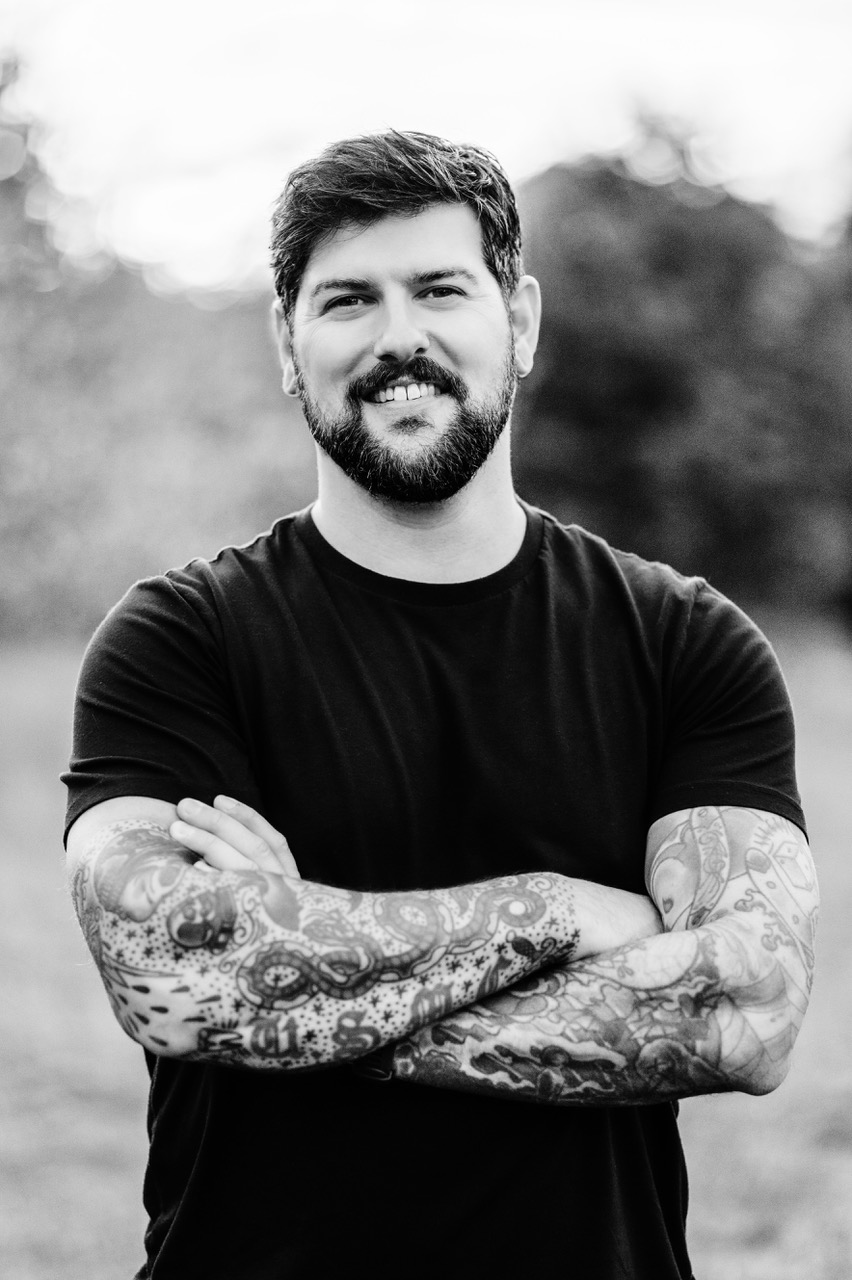 |
|
| Matt Young (photo: Katelynn Wyrick) |
|
Marine Corps veteran Matt Young's first book, Eat the Apple, was a structurally inventive memoir about his time in the service. His novel, End of Active Service (available now from Bloomsbury; reviewed in this issue), centers on a young man who's left the Marines and returned home to Indiana, where he's haunted by memories of his squad and Iraq. Young has also published stories and essays in Time, Granta, Tin House, Catapult, and the Cincinnati Review, among others. He teaches composition, literature, and creative writing at Centralia College in Washington.
When did you know you wanted to write a novel? Was it conceived before or after your memoir?
Like a lot of creative writers, I thought fiction was the thing that I wanted to write, but I was terrible at it. I stopped writing it for a while, and I thought after I wrote my memoir that I would just keep writing nonfiction.
I was trying to write about parenthood. I'm adopted myself, and I was trying to write about my adoption and stuff like that. I finally wrote this creative nonfiction essay that was about taking my daughter home from the hospital. I have a little bit of that creative nonfiction essay from then in the novel now.
Then I started writing these really short fiction pieces that accompanied it. My daughter was the centerpiece, and I was kind of a vague character, but it wasn't really me. I wrote one fictional piece about cutting my daughter's face out of pictures and pasting them onto pictures of me when I was in the Marine Corps. It sustained the voice from the nonfiction, but it felt weird because I didn't know what to do with it. I hadn't really pictured myself writing a novel. But then I didn't really question it for too long because I liked what I was doing. It ended up snowballing into all these little tiny vignette pieces. And, eventually, I formed it into a more traditionally structured novel. But I didn't have a plan to write a novel, I wanted to write nonfiction, and then that just blew up.
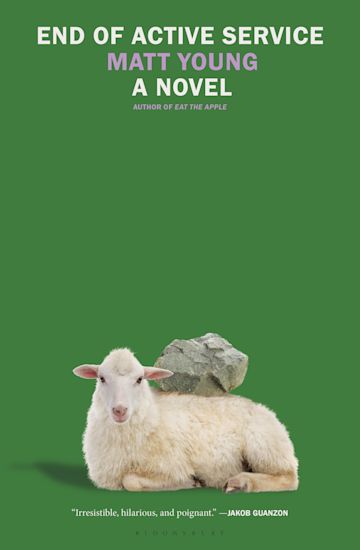 The novel has two different storylines: Dean after getting out of the Marine Corps and Dean's time in the service. I'm just curious how you approach time. What was your relationship with it when you were writing the novel?
The novel has two different storylines: Dean after getting out of the Marine Corps and Dean's time in the service. I'm just curious how you approach time. What was your relationship with it when you were writing the novel?
I was finishing my MFA and this was my thesis project. I was reading about fractured narratives and structures of time in literature. On the whole, it was looking at chronological time, segmented time, and circular time. I was thinking about how oftentimes in memoir, or a narrative, where the protagonist has undergone some kind of trauma, then often the narrative structure of time is presented in this fragmented way, because that's how our brains kind of process.
Dean's split between these two spaces, but also, in his day-to-day life, not everything holds consequence for him. There are moments that stick out, that are more significant and that are related, in some way, or paralleling things that have happened in the past. I was thinking about the idea that time is a flat circle, that everything is always happening, and that it's always going to be happening and repeating itself. Dean's experiencing that kind of time.
Dean presents as all tooth and nail and tough, but there are glimpses of tenderness. What comes to mind is when he says the first time he touched a gun was in the Marines. Growing up, he hadn't wanted to go hunting with a friend because he hadn't wanted to shoot a deer. Did the balance of tender moments and violence come organically?
I think it's pretty organic, because the character is essentially a black mirror of me in some way. I grew up in Indiana, I didn't want to go hunting with my friends. When I was a teen, I probably said, "Oh, that's so stupid. Why would you want to wake up at like four o'clock in the morning to sit in the woods for four hours or whatever?" But there's a part of me that thought, I don't want to do that. I don't want to kill an animal.
I think that balance comes from a lot of time in therapy and being able to get in touch with my vulnerability as a man again, and to think, Oh, yeah, I do have empathy. I do have this gentle side. That is also a part of being a man. It's something that Dean really struggles with, but he wants it. At least he recognizes that. Or that's how he feels he should be in the world. There are a lot of shoulds for Dean.
You showcase masculinity in many forms, including the toxic variety. I'm thinking about Rick versus Dean versus Court versus Ruiz. Was that deliberate or did it just come from the story?
They're all various men that I've encountered. There's not really an intent to kind of showcase all these potentially terrible men or something like that. But I think, in my experience, at least, those are kind of like the stereotypical stock characters that you seem to encounter in some way.
They're also varying models that Dean sees for himself. He doesn't really know who he is. He's essentially a blank slate. And he's trying to figure out what parts to add, and what parts to jettison and, I don't necessarily know that these other men in his life know who they are, either.
But Dean seems to think that they do. It was more about putting him in conversation with somebody who's going to maybe fulfill our expectations in some way, but also surprise us in some way.
One of the tricky things about writing about the military is how to translate jargon and acronyms for a broader audience. It seems pretty seamless in the story. But was that a struggle? How did you approach it?
In my first book, I didn't take that into account at all. I think some people are like, "I didn't really understand this part." I don't know if you really need to--that jargon is meant to evoke a feeling. But, yeah, there were parts that I rewrote. And I think there are some moments of avoidance. There are a couple of times where Dean says something out loud, or thinks a thought, or is narrating to the audience or something in a way that I wouldn't if I was telling the story. I wouldn't say that acronym out loud. I wouldn't spell it out for somebody at first, I'd wait for them to ask, or something like that. So it was like paying attention to those kinds of things because I didn't want people to get lost in it.
I do think that there's another space of confusion for people because that is just the way that he talks about his time in the Marines and the infantry. The experience is so steeped in jargon. I think part of it can be a mechanism to kind of throw people in the deep end and have them feel immersed in that space. But it's probably a balance. My editor was really helpful in that and having me dial it back this time around.
Did you look to any books or authors as guideposts while drafting the novel?
I have three novels that I was reading as I was thinking about the time structures I mentioned. Christopher Isherwood's A Single Man; Ceremony by Leslie Marmon Silko; and this really quiet book by Tove Jansson called The Summer Book. --Nina Semczuk
Book Candy
Book Candy
Blatherskite, for example. Merriam-Webster added to its "great big list of beautiful and useless words, vol. 4."
---
Illustrator Tom Gauld "on the human-AI collaborative novel Robot Apocalypse 2030." (via the Guardian)
---
"94-year-old grandmother kept meticulous book log for 80 years." (via Goods Home Design)
Rediscover
Rediscover: John Burnside
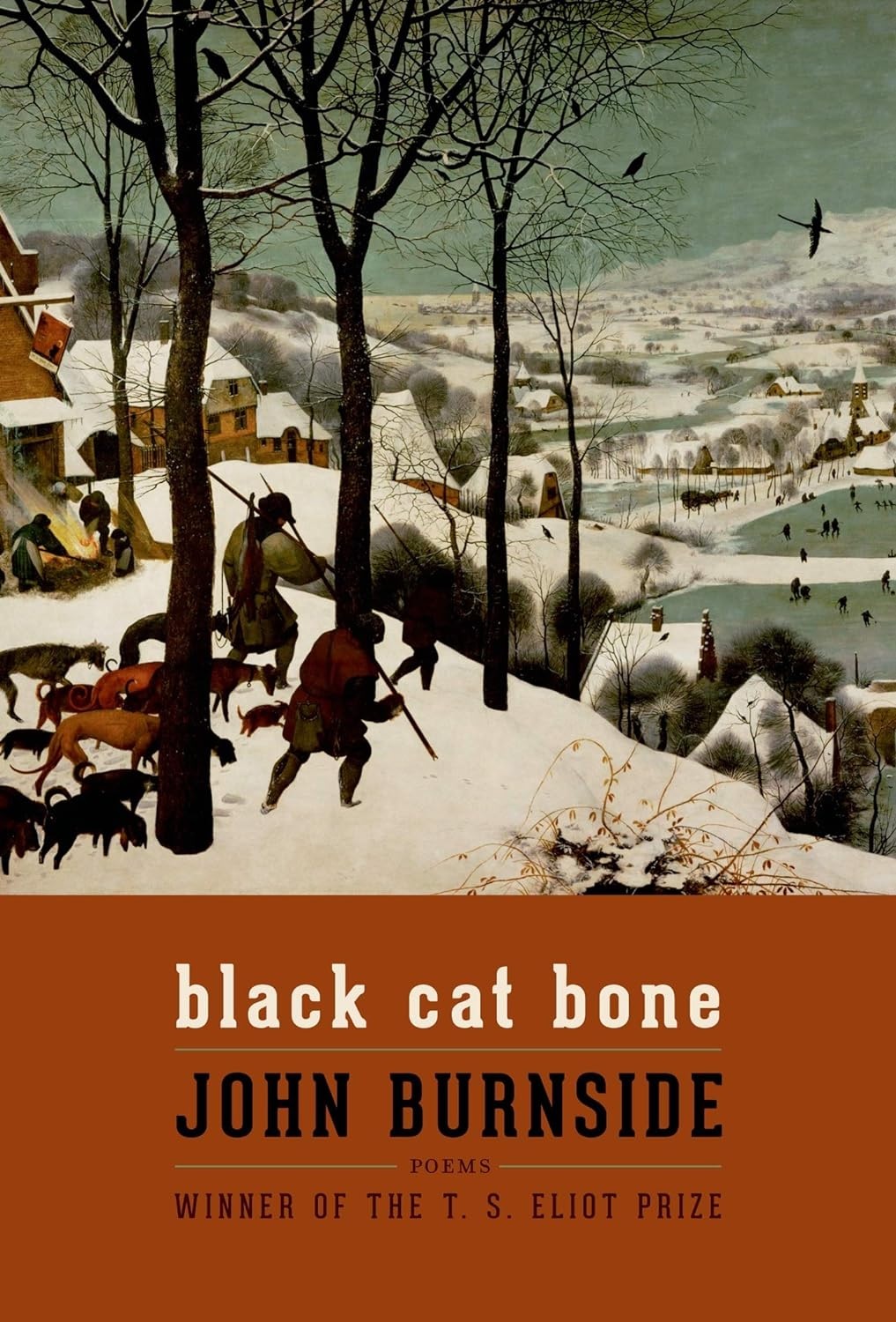 Scottish author John Burnside, whose career spanned more than 35 years and who was one of only four people to have won both of the U.K.'s most prestigious poetry prizes for the same book, died May 29 at age 69, the Guardian reported. Even though he was primarily known as a poet, Burnside wrote in many forms, including fiction and memoir. In 2011, he won the Forward Prize and in 2012 the T.S. Eliot Prize for his poetry collection Black Cat Bone, an accomplishment achieved by only Ted Hughes, Sean O'Brien, and Jason Allen-Paisant. Last year, Burnside won the David Cohen Prize, which is given in recognition of an author's entire body of work.
Scottish author John Burnside, whose career spanned more than 35 years and who was one of only four people to have won both of the U.K.'s most prestigious poetry prizes for the same book, died May 29 at age 69, the Guardian reported. Even though he was primarily known as a poet, Burnside wrote in many forms, including fiction and memoir. In 2011, he won the Forward Prize and in 2012 the T.S. Eliot Prize for his poetry collection Black Cat Bone, an accomplishment achieved by only Ted Hughes, Sean O'Brien, and Jason Allen-Paisant. Last year, Burnside won the David Cohen Prize, which is given in recognition of an author's entire body of work.
Burnside published his first poetry collection, The Hoop, in 1988, beginning a working relationship with editor Robin Robertson, with whom he continued to work up to the publication of the most recent collection, Ruin, Blossom (2024). Robertson, poetry publisher of Penguin Random House imprint Jonathan Cape, called it "one of the privileges of [his] life" to work with Burnside: "Flawed but fearless, fabulously gifted, he was a truly great writer."
Burnside's works also include the poetry collections The Myth of the Twin (1994), Swimming in the Flood (1995), The Good Neighbour (2005), Selected Poems (2006), All One Breath (2014), Still Life with Feeding Snake (2017), and Learning to Sleep (2021); the memoirs A Lie About My Father (2006), Waking Up in Toytown (2010), and I Put a Spell on You (2014); as well as eight novels, including The Dumb House (1997) and Living Nowhere (2003).
Anna Webber, his literary agent, added: "This is an immense loss. John Burnside had a unique voice that brought pleasure and solace to many readers across the globe. His work was characterised by deep empathy and understanding. He was finely attuned to the natural world, but also to people. These traits, so clearly visible in his writing, also marked out the man himself. John was kind and gentle and generous, and I will miss him terribly."
Noting that he "had a gift for naming those things that exist beyond plain sight, and for roaming through 'empires of light against the coming dark,' " author Andrew O'Hagan observed in the Guardian that Burnside "made a lifetime's work out of being an unpredictable and beautiful writer.... He was among the best writers of his generation, fully voiced and perfectly pitched. He always left his readers in an unforgettable place, leading us with kindness through a world of glints and echoes."
From Burnside's poem "Afterlife":
this bungled joy, this inarticulate
conviction that the future cannot come
without the grace
of setting things aside,
of giving up
the phantom of a soul
that only seemed to be
while it was passing.
Read what writers are saying about their upcoming titles


